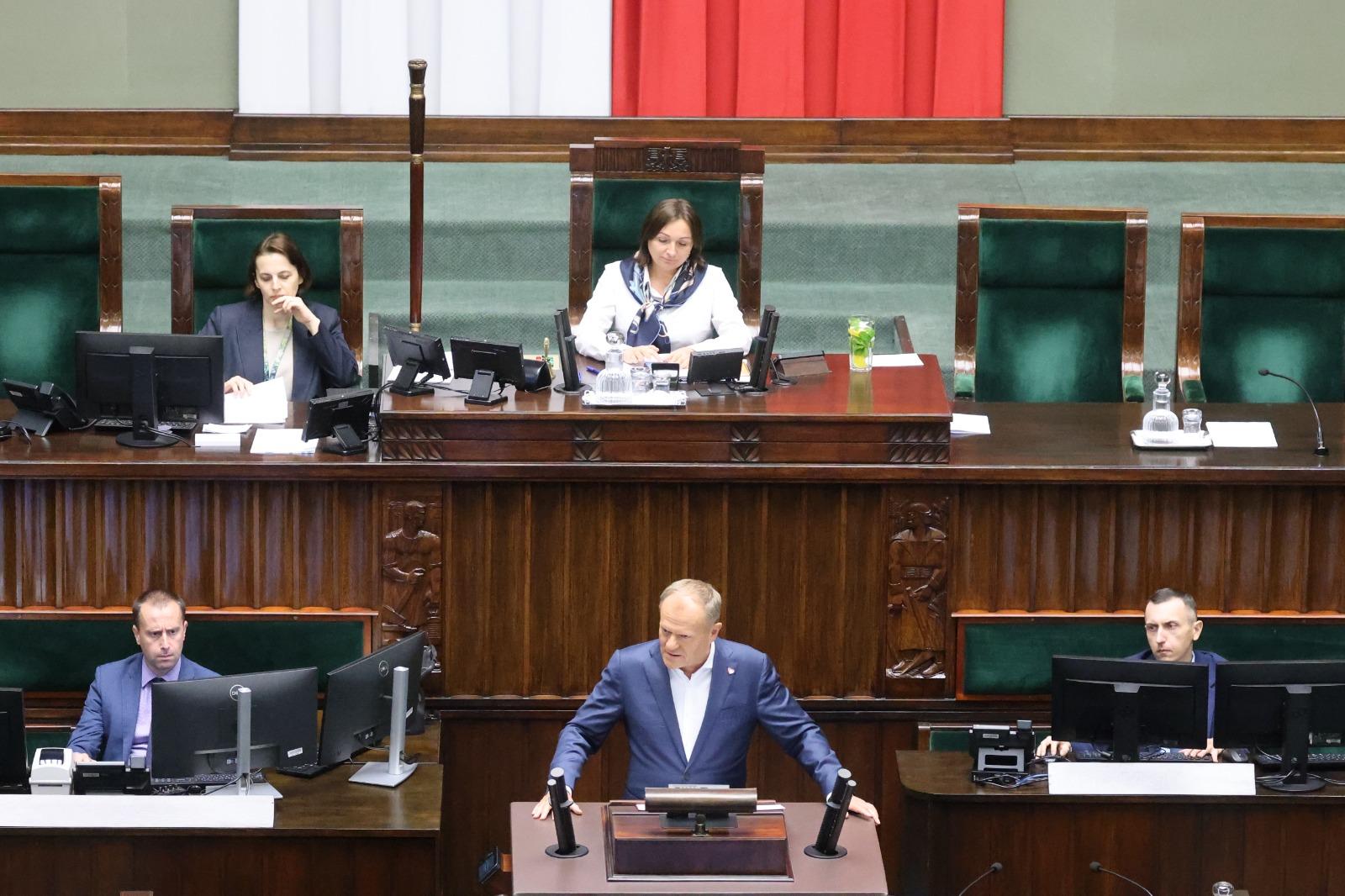Tusk calls for full border closure with Belarus and Russia to counter hybrid threats
Prime Minister Donald Tusk has called for the complete sealing of Poland’s borders with Belarus and Russia, citing the need to protect national security and prevent the recurrence of uncontrolled migration. During a parliamentary debate on the government’s resolution to extend restrictions on the right to apply for asylum at the Belarusian border for another 60 days, Tusk emphasized the urgency of safeguarding the border against external threats and smuggling operations.
Tusk stated that one of his government’s first steps was to secure the eastern frontier to prevent a repeat of past border breaches. The current restrictions, introduced in December 2024 and in force until May 26, would be extended as part of a broader strategy to combat illegal migration and respond to what the Prime Minister described as deliberate destabilization efforts by Belarus and Russia.
“This is not just a migration crisis, but a calculated act of hybrid warfare,” said Tusk. He alleged that the governments of Alexander Lukashenko and Vladimir Putin were using migrant flows as tools of pressure, directing them toward Poland, as well as neighboring countries including Finland, Lithuania, and Latvia, in cooperation with smuggling networks.
Tusk underlined the risks faced by Polish personnel stationed at the border, referencing the death of Sergeant Mateusz Sitek, who was fatally wounded near Dubicze Cerkiewne in June 2024. “This conflict has a physical and tragic dimension for our border forces,” he said, insisting that national security must be backed by real and enforceable protections.
To counter the influx of migrants, the government plans to launch an international information campaign targeting countries of origin. The campaign, led by the Ministry of Foreign Affairs, aims to deter prospective migrants by clarifying that illegal border crossings will not result in asylum or settlement in Poland.
The Prime Minister also criticized the previous government’s handling of migration and visa policy. He accused the former administration of enabling widespread abuse through the mass issuance of visas—over half a million in 2023 alone—to individuals from countries considered high-risk for illegal migration. He referred to the scandal as a systemic failure marked by corruption and a lack of oversight. Eleven individuals have been charged in connection with the case.
Tusk denounced what he described as the hypocrisy of his predecessors, claiming they promoted Foreigners’ Integration Centres and later disowned them for political gain. He said the former ruling party created a flawed system, then attempted to shift responsibility once the consequences became politically inconvenient.
Addressing another contentious issue, the Prime Minister criticized the previous administration’s approach to grain imports from Ukraine. He said their failure to control the influx of Ukrainian agricultural products endangered Poland’s domestic market and farmers. In response, the current government negotiated new terms with the European Union, reintroducing pre-war import controls starting 5 June 2025 to safeguard Polish agriculture.
While reaffirming Poland’s continued support for Ukraine in its war against Russia, Tusk stressed that such support must not come at the expense of Polish economic stability. “We will continue to stand with Ukraine, but we also have a duty to protect our own farmers, producers, and consumers,” he said.
Tusk concluded by stating that security, whether in terms of borders, markets, or policy, must be based on action, not declarations. He reiterated his government’s commitment to defending national interests in the face of external and internal challenges.









